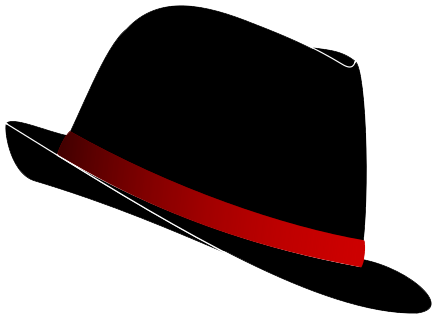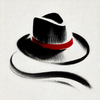The Owl Flies at Midnight
In the flickering neon glare of a city that never quits, a battered van delivers newspaper bundles each morning to a labyrinth of century-old alleys. The headlines snarled, like rabid curs, to the frightened few left of the late night wanderers. Gutters, overflowing with oily rain scum, caught the neon to kick up a surreal, sickly glow. Blake stepped past the puddles with a hard-earned eye for clean footing.
The day had started at five-thirty, waking to a saxophone's wail cutting through the stale haze of his three-room thin-walled walk-up. He groaned and opened an eye, half-expecting a combo jamming in the kitchen. Instead, it was the last of the late-night infomercials, promising enlightenment through musk-infused yoga mats.
He stumbled out of bed, one coil and a floorboard creaking, and made his way in to the kitchen. The coffee machine blinked at him with casual contempt. He fumbled with the buttons, hoping for the best, but got only a dry whirring of mockery.
In the fridge, next to a half-eaten sandwich and a jar of pickles, was the current case file. He sighed, scratched, and pulled it out to fan the contents across the table. The victim, a young woman with face half-hidden, stared up at him in captured shadows. Details were sparse and clues even more so: a matchbook from a bar that was torched five years back; a crumpled bus ticket to a town — Doubledale — that couldn’t be found on any map. Also a note on an unlined scrap, from an unsteady hand, in vivid red ink: The owl flies at midnight.

He scratched his head and weighed the odds that the note was just a private joke. More noise, louder now, outside and percussive. He looked out the window to see a beam angling over from a chopper, the beast hovering out of sight nearby to the East while it rattled the windows and searched for its perp. Early morning smog made the line of light look as solid as steel.
Blake was sufficiently awake now to notice a message on his phone. It was from DeeDee: Meet me at the usual place. Bring the package. He had no idea what package she was talking about, but that was on brand for DeeDee. She thrived on a quotient of confusion and supplied some as needed.
He grabbed his coat and stepped out into the last of the night, the city wrapping itself around him like a chilly embrace. The “usual place” was a decrepit diner that served — as its sign insisted — the best rhubarb pie in town. He had his doubts but pushed through the door, causing the bell above to tinkle twice, off-key. DeeDee was already there, sipping coffee and tapping her fingers to a privately syncopated rhythm.
You got the package? she asked without looking up.
He slid into the booth across from her. What package?
An eye-roll: The one with the red ribbon. The one you were supposed to take from the cripple at Pier 3.
His mind raced, trying to recall any mention of a ribbon or a mangled longshoreman. Nothing. I think there's been a mix-up.
DeeDee glared across the rim of her cup. A mix-up? She leaned in closer. Listen, you useless schmuck. This city's a sealed maze, and we're all just rats trying to sniff out the cheese. You lose that package, you lose the game.
Blake was about to reply when a crash from the kitchen stopped them both. The cook, a hairy boulder with floral tattoos, stumbled out from a fresh cloud of flour. Damned rats, he muttered, clenching his fists and catching his breath.
DeeDee smirked. See what I mean? They’re everywhere.
Before he could respond a man in a trench coat and fedora slid into the booth next to him. You Blake? he asked in a raspy whisper.
DeeDee nodded for him.
The man slid him a wrapped rectangular package, tied up with a vivid red ribbon. This is for you. From the Professor.
Blake took the package. It was lighter than expected. Who's the Professor? he asked, but the fedora and trench coat were already gone, leaving behind only a whiff of watered cologne.
DeeDee’s smile was showing teeth. Looks like your day’s on its way now, buddy boy.
He unwrapped the package to find a wooden box crudely carved to resemble an owl. Its head was a little loose and dropped onto the counter; inside was a key wrapped in another scrap paper note, again in familiar red ink: The falcon rises at dawn.
He sighed, pocketing the key. Great. More riddles.
DeeDee laughed, the sound echoing through the still-empty diner. Welcome to the game … hope you're ready to play.

Blake knew what he needed: a fortune teller. Not some one-eyed gypsy crone with a ball and a deck, but a typewriter-at-the-ready hand-crafter of fortunes: a professional fortune cookie composer. Three hours later, across town, he was sitting at the back of a faded brick bakery, facing a fifty-something character with a cigarette holder and oversized sequined eyeglasses. Anglo, of course, and going by Delilah, of course. The creases in her cheeks, sharp as the glass in the street, hinted at a history she’d be reluctant to tell. Delilah spoke in riddles, instead — each sentence a koan or conundrum, although delivered with a flat matter-of-factness that certified a kernel of truth. The owl hoots twice, she said, exhaling a twisting plume, when the moon is red and the river runs dry.
The slow rain was turning to sleet outside. Behind Delilah, dimmed from decades of cheap cookie dust, was Hayworth in the poster for Gilda. Blake knew the dangerous allure of coherence, of cohesion. Delilah murmured a mix of metaphor and simple, direct truth, but in this city, in this country, such distinctions scarcely mattered any more.
A radio in the corner crackled to life with a news item on the disappearance of a development tycoon whose empire of resorts and casinos was said to be built on crypto and distributed debt. Sometimes the answers are in the obituaries, Delilah murmured. The station switched to a jazz number, melancholy with gentle piano.
It put him in mind of a case from a few years back, a sad mess involving a street corner nut-job — youngest son of a prominent family — who kept shouting to passers-by that he could hear the thoughts of the captive orcas at the harbor aquarium. Apparently, they were obsessed with both sex and the murder of their keepers. Coincidentally, his daddy had bankrolled that fishbowl. The poor dumb bastard ended up face down in the river, pockets filled with stones and a note that read, The raven sees all. Which happened to be exactly Delilah’s words as the tune wound down.

He moved on. At least the sleet and rain had stopped, and not-so-sinister civilians were braving the noon. As he walked, floating snippets of dialogue vectored in from odd angles. A cat with no tail, said a man hustling past, can still catch a cornered mouse. An old woman muttered something about a clock that ran backward, her voice tangled with the clatter from the drains.
Blake's last destination was the crumbling main library, rumored to have a mob boss cemented in the basement. The head librarian, a gaunt creature with eyes like polished prunes, listened to him closely, raised one finger, and disappeared without a word. Four minutes later he returned with a leather-bound door-stop, evidently unopened for sixty-odd years. The answers lie in the margins, he said, pushing the slab forward. Blake hauled it to a table and chair in a discreetly-distant corner. The book’s title was The Key to Lost Knowledge and every single page was blank where the content should be, and yet crowded around at the margins with encoded annotations. The notes looked like hieroglyphics, but they were in a familiar hand, and in a familiar shade of red.
As he worked through the pages — hundreds of pages — he discovered notes that had arrows pointing to unseen specifics, and elsewhere an ideogram or two would be underlined for emphasis. The whole of the book was its notes, and may always have been: there was no evidence of printing impressions anywhere, no matter how he shifted it against the light. In the end, all he had to suss out its meaning was that telltale, taunting color and shaky fine motor control. Aesthetics, when said and done.
Back on the streets, a parade of masked revelers danced to a silent tune, their movements synchronized in a way that suggested a hidden choreography. Blake followed them, drawn by an instinct as old as the city itself. The parade led him to a graffiti-covered wall, where the faces of missing persons stared back at him, their eyes pleading for resolution.
Heading home — or what passed as home — his loose coat flapped like the wings of a wounded bird. The rain had returned as a steady drizzle, greasing the streets with a sickly sheen that reflected the dying sky. He lit a cigarette from old, bad habit, and the flame mocked him with a flicker of that familiar damned red before he smothered it with his thumb.
Along the way he passed by the river, by the bank where the nut-job was found. Those orcas were finally freed, after killing one of their handlers. Probably boinking like ferrets half-a-world away now. The falcon would rise, the owl would hoot, and the raven would see all. Unless it was it the other way around.

